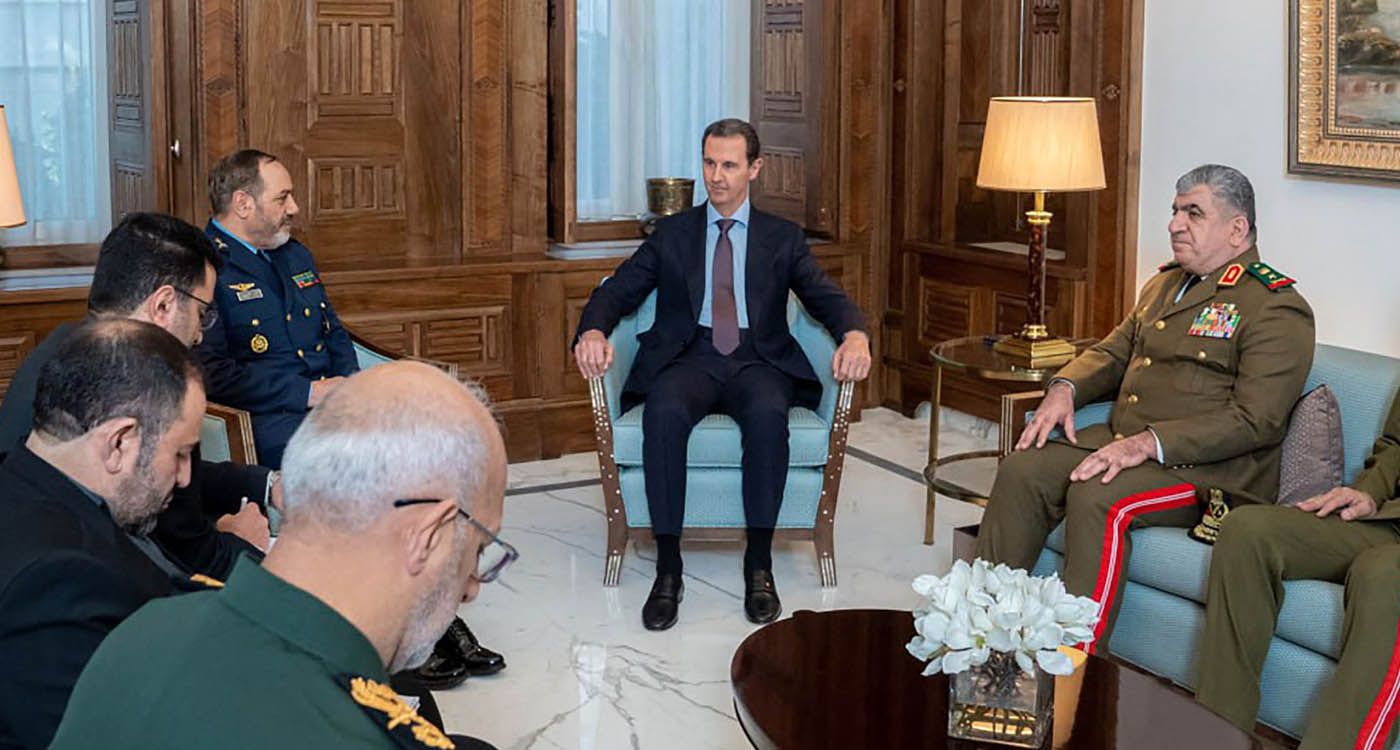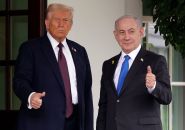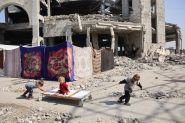- Home
- Middle East
- Syria at the Center of Negotiations Between Israel and Lebanon for a Ceasefire

Syrian President Bashar al-Assad receives the Iranian Minister of Defense, Brigadier General Azizi Nasirzadeh, in Damascus. ©Syrian Presidency’s Telegram page/ AFP
Syria, which has maintained a low profile since October 7, 2023, now appears to be emerging as a key player in the negotiations between Israel and Lebanon. Though these talks remain behind closed doors, multiple sources suggest that international diplomatic envoys are positioning Damascus as a central figure in the discussions.
A Shifting Regional Conflict
For over a year, the region has been engulfed in a conflict that began with Hamas’ attack on Israel on October 7, 2023. The following day, Hezbollah launched its own front in support of Gaza, invoking the “unity of fronts.” Yet, Lebanon—its citizens and its caretaker government—was pulled into the war’s vortex following the unilateral decision by the pro-Iran militia to intertwine the nation’s fate with that of Gaza. Now, the country is seeking to negotiate a resolution distinct from the ongoing crisis in the Palestinian enclave.
US envoy Amos Hochstein is currently in talks with Lebanese Speaker Nabih Berri, who stresses the need for strict adherence to UN Security Council Resolution 1701. Adopted in 2006 after the Israel-Hezbollah conflict, the resolution seeks to establish a durable ceasefire in southern Lebanon. It calls for Hezbollah’s disarmament, its withdrawal north of the Litani River and the deployment of the United Nations Interim Force in Lebanon (UNIFIL).
Ongoing discussions revolve around ways to bolster the implementation of Resolution 1701, including proposals to expand the monitoring commission by incorporating countries like the United States, France, Jordan or Egypt.
Syria: A Strategic Pivot
Israel remains skeptical about the effectiveness of strictly implementing UN Resolution 1701. Officials argue that Hezbollah has managed to establish a robust military infrastructure along the border while maintaining a low-profile armed presence, effectively circumventing the resolution’s intent. Despite fierce clashes and the destruction of border villages, Israeli forces have been unable to secure a lasting presence in southern Lebanon.
In this context, Syria's role becomes increasingly significant. Israel considers Syrian territory a vital conduit for the transfer of weapons from Iran to Hezbollah. These routes are critical for the movement of missiles and other armaments into Lebanon. In response, Israel has ramped up airstrikes in Syria, specifically targeting Hezbollah’s logistical hubs and smuggling routes.
Diplomatic sources reveal that Israeli Minister of Strategic Affairs Ron Dermer recently visited Moscow to seek Russian President Vladimir Putin’s influence over the Syrian regime. The objective is to persuade Damascus to distance itself from Tehran and halt the flow of weapons to Hezbollah. In return, Israel is reportedly open to discussions about easing long-standing economic sanctions on Syria.
The Syrian town of Qusayr, near the Lebanese border, highlights Syria's strategic role in this conflict. Controlled by Hezbollah since a decisive battle in 2013, Qusayr serves as a key logistical corridor for the Shia group. Israeli airstrikes in this area have targeted infrastructure and smuggling routes, inflicting substantial losses on Hezbollah’s operations.
A Potential Realignment of Alliances?
The central question is whether Syria is willing to reconsider its longstanding regional alliances. Economically and politically weakened, Bashar al-Assad's regime might see an opportunity in the partial lifting of sanctions, offered in exchange for cooperation with Israel and its Western allies. However, such a shift would require balancing its deep ties with Iran—a critical ally during the Syrian civil war—and Hezbollah, whose military presence is deeply entrenched in Syria.
Russia, a major power broker in Syria, may encourage Damascus to consider such an agreement, particularly if it serves Moscow’s strategic interests in the region. The prospect of a Trump administration returning to the White House —with its declared intention to swiftly end the conflict between Russia and Ukraine—could further incentivize Moscow to stabilize Syria.
Meanwhile, Israeli strikes on Hezbollah targets in Syria, especially against Unit 4400, responsible for arms trafficking, have increased in recent months. According to the Israeli military, these operations have significantly degraded Hezbollah’s capacity to bolster its arsenal. However, it remains uncertain whether these actions will lead to a tangible shift in the power dynamics of the region.
Ultimately, Syria’s position in the ongoing ceasefire negotiations between Israel and Lebanon could prove decisive. Its ability to control Hezbollah’s supply routes and limit its armament might be key to achieving sustainable peace in southern Lebanon. However, questions remain about Damascus’ readiness and capacity to navigate this shift without provoking further regional instability.
Read more




Comments